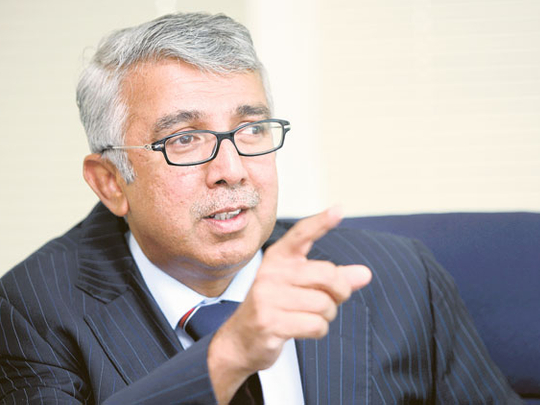
Dubai: With automobile insurance premiums at all-time lows, insurers are not just looking at a wreck… they are in it. And they know it.
Now, given the intense competition, rates could slip even further from the prevailing average of 3 to 3.5 per cent.
While this means a lower payout for vehicle owners on their annual renewals, for insurers it would be just another way to spell doom.
"If it happens, this — both in short and medium terms — would be disastrous for the insurers," said Mustafa Vazayil, managing director at Gargash Insurance Services.
"This is happening because so many insurers are chasing a not-so-expanding motor sector. It is a case of over-supply."
While it will be a few weeks before the 2011 financials of the local insurance companies are announced, it is common knowledge that they will not be getting much cheer from their motor lines.
More so, the motor segment represents more than 50 per cent of their gross premium income.
Steady cash inflow
And there's no getting away from motor either. This represents a steady cash inflow for the insurers, and its importance is magnified given that key lines such as construction and property are not generating enough opportunities in a tightening marketplace.
"You can't have an insurer without motor. It's the cash flow provider, as is medical," said George Ashkar, managing director at the recently formed Gateway International Assurance.
So is 2.5 per cent going to be the new standard for motor renewals? For the record, this rate is already available on some corporate fleets, but has yet to find widespread support on individual lines.
But if insurers find the going tough on their cash flow situation in the first weeks of the New Year, a natural reaction would be to slip in a lower premium on motor and generate as much business as they can.
Which is why Vazayil says, "The motor rate could for a short period perhaps break the psychological barrier and go below three per cent."
Interestingly enough, compared with the years preceding it, 2011 actually saw fewer accidents on local roads and, consequently, lower insurance payouts. But insurers failed to benefit adequately as these risks were written on such low premiums.
Service to take back seat
Car owners may be paying a lot less on their vehicle renewals than they should be, at least from an insurer's perspective. But it comes at a cost that they may not know of until a mishap happens involving their vehicles.
"The quality of service from the insurer's side starts slipping when they find their premiums are under stress," said George Ashkar of Gateway International Assurance. "It is most visibly illustrated in motor insurance and policyholders will inevitably find they are getting only the service they paid for… and in cases even less."
This could involve non-agency repair provisions and, at times, even at garages that would not be the first-choice considerations.
"In such a situation, the consumer should use utmost care and seek advice on cover restrictions of lower priced motor insurances," said Mustafa Vazayil of Gargash Insurance Services.
"Insurers who are not able to sustain a quality service will in turn start controlling the claims settlement to the adverse impact on policyholders."










